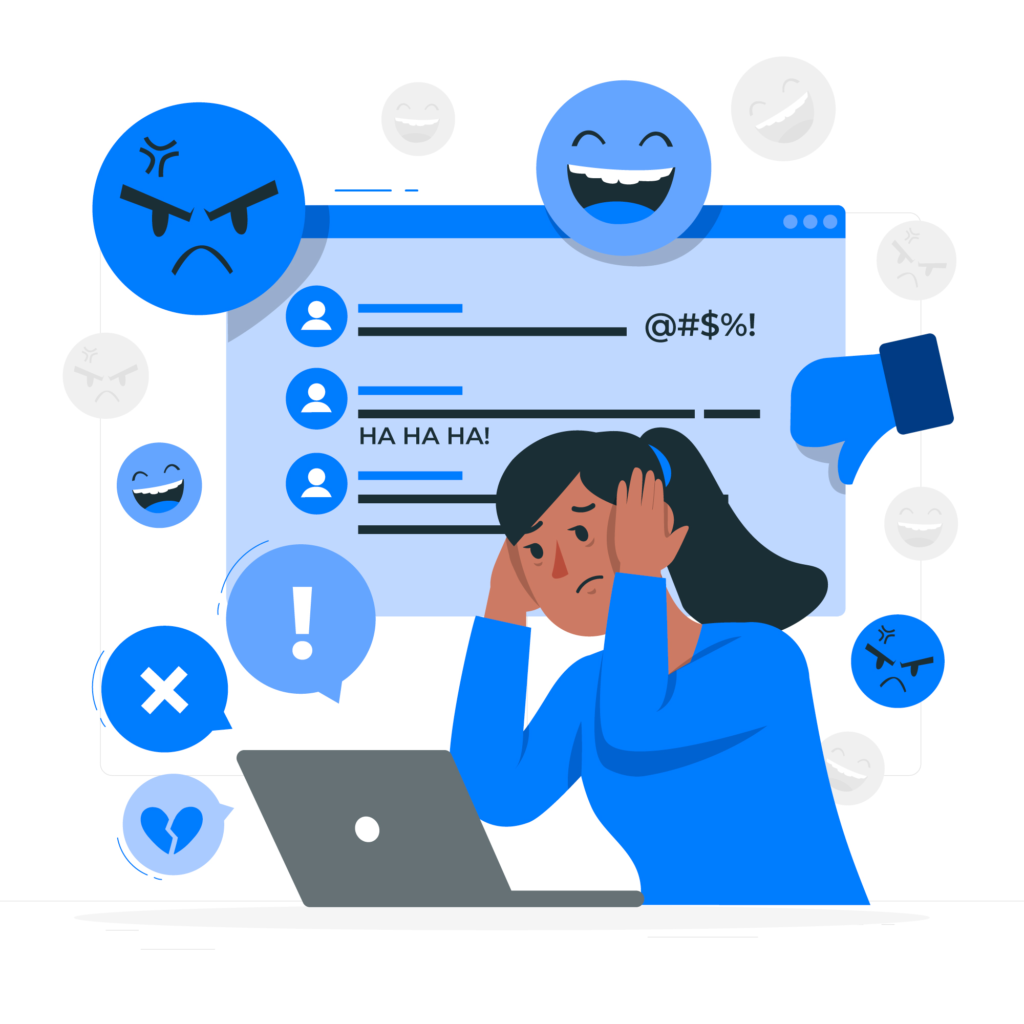Social media is more than just a tool for communication; it’s a powerful platform that can either build communities or tear them apart. This post doesn’t debate whether social media has done more harm than good. Instead, it’s about how you can take responsibility for curbing the spread of false information and hate.
You have all witnessed the drama on social media—bitter arguments, hate-filled comments, and malicious gossip. Whether you like to admit it or not, many of you inadvertently contribute to this toxic environment. Supporting divisive content, subscribing to unreliable gossip blogs, or leaving inflammatory comments all play a role in perpetuating these problems. Even if you’re indifferent about your online reputation, consider your actions’ impact on the victims of false information and hate.
on the victims of false information and hate.
Society is increasingly poisoned by hate and misinformation, fuelled by those who seek to distract from their own issues through communal gossip.
The Speed and Reach of Social Media
Social media’s ability to spread information quickly is both its strength and its weakness A single post can go viral within minutes, reaching millions worldwide. While this can be beneficial for spreading positive messages, it also allows false information to proliferate unchecked. Fake news, conspiracy theories, and harmful content can gain traction before fact-checkers or authorities can intervene.
Social media algorithms prioritize content that generates strong emotional reactions—likes, shares, and comments. Unfortunately, sensational posts often receive more engagement than balanced, factual content. This is why we see so many provocative comments and misinformation online.
Does Hate Speech Cause Division?
Social media was designed to foster unity and connection. However, it has also become a breeding ground for intolerance and violence. Hate speech, often targeting race, religion, gender, or other identities, stands out because it’s blatant and harmful. A glaring example is the ongoing clash between Nigeria and South Africa, where anonymity emboldens people to express harmful opinions they wouldn’t voice in person.
YOUR ROLE IN COMBATING MISINFORMATION AND HATE
- Become a Media Literacy Champion
- Question Everything: Approach information with a healthy dose of scepticism.
- Verify Sources: Check the credibility of information before sharing it.
- Recognize Bias: Be aware of your own biases and how they may shape your perception.
- Amplify Truth and Positivity
- Share Accurate Information: Distribute verified content that promotes empathy and respect.
- Counter Harmful Narratives: Challenge misinformation and hate speech with facts and constructive dialogue.
- Support Credible Sources: Follow reliable news outlets and fact-checking organizations.
- Engage in Constructive Online Interactions:
- Be Respectful: Maintain civility in your interactions and avoid personal attacks.
- Foster Dialogue: Encourage thoughtful and open discussions.
- Report Harmful Content: Use social media’s reporting tools to flag misinformation and hate speech.
- Educate Yourself and Others:
- Stay Informed: Keep up with current events and trends in misinformation and hate speech.
- Share Knowledge: Educate those around you about the dangers of misinformation and the importance of critical thinking.
- Support Digital Literacy Initiatives: Advocate for programs that teach responsible digital behaviour.
In Conclusion…
Social media has changed our communication and information access, but it has also made it easier for false information and hate to spread. To address these issues fairly and squarely, it requires a collective effort that includes education, responsible platform policies, and individual vigilance.
By working together, we can foster a healthier, more informed, and inclusive online environment.
